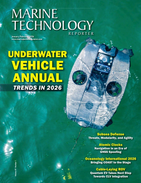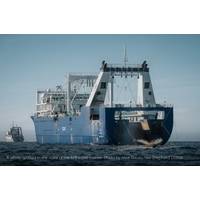
Sea Shepherd Returns to Antarctic to Raise Awareness about Krill
Sea Shepherd Global has launched its 2026 Operation Antarctica Defense campaign following the departure of the M/Y Allankay from Ushuaia in Argentina.Last season, the industrial krill fishery reached its seasonal catch limit early for the first time, triggering an unprecedented early closure. This extraordinary development highlights the escalating pressure on krill populations and the Antarctic ecosystem already destabilized by climate change, says Sea Shepherd.Industrial krill super trawlers operate primarily in an area between the South Orkney Islands and the Antarctic Peninsula region, an area
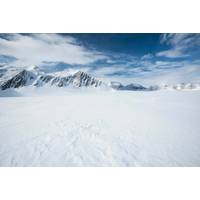
New Map Reveals Terrain Below Antarctic Ice Sheet
Scientists have devised the most detailed map to date of the terrain hidden below the vast ice sheet blanketing Antarctica, uncovering an exuberant landscape of mountains, canyons, valleys and plains while discerning for the first time tens of thousands of hills and other smaller features.The researchers used the latest high-resolution satellite observations and a method called ice-flow perturbation analysis, which estimates subglacial topography and conditions based on surface features, to map the full continent including previously uncharted parts.Improved knowledge of the subglacial bedrock landscape
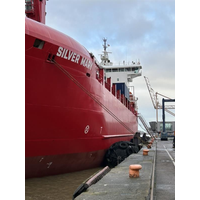
BAS Secures Antarctic Station Resupply for the Next Decade
The British Antarctic Survey (BAS) has joined forces with the Norwegian Polar Institute (NPI) and Germany’s Alfred Wegener Institute (AWI) to share an ice-capable vessel that will resupply three Antarctic research stations for the next 10 years. The Silver Mary will visit Halley VI station every other season, along with Norway’s Troll station and Germany’s Neumayer station.The partnership builds on the successful UK-German partnership that resupplied Halley in 2023-24. The first call to Halley VI under the new agreement is planned for January 2026. NPI will operate annual voyages
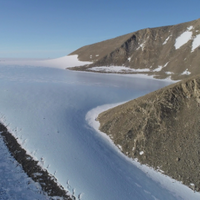
Antarctic Mountains Could Boost Ocean Carbon Absorption
Research led by polar scientists from Northumbria University has revealed new hope in natural environmental systems found in East Antarctica which could help mitigate the overall rise of carbon dioxide in the atmosphere over long timescales.As Antarctica's ice sheets thin due to climate change, newly exposed mountain peaks could significantly increase the supply of vital nutrients to the Southern Ocean which surrounds the continent, potentially enhancing its ability to absorb atmospheric carbon dioxide, according to the research published in Nature Communications.A team of scientists with expertise
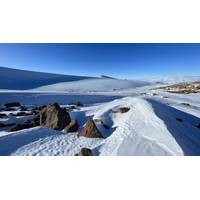
Scientists Discover Six Million Year Old Ice in Antarctica, Offers Unprecedented Window into a Warmer Earth
A team of researchers, including those from Woods Hole Oceanographic Institution (WHOI), has discovered the oldest directly dated ice and air on the planet in the Allan Hills region of East Antarctica, according to a new study published in the Proceedings of the National Academy of Sciences.A 6-million-year-old ice sample—the oldest sample from Allan Hills dated by researchers—provides an unprecedented window into Earth’s past climate, where abundant geological evidence indicates much warmer temperatures and higher sea levels compared to today.The research was led by Sarah Shackleton
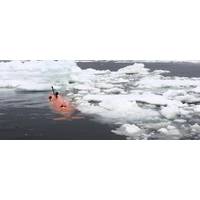
University of Gothenburg to Buy New AUV
The University of Gothenburg will buy a new underwater vehicle to replace Ran, the AUV that was lost under a glacier in Antarctica in 2024.A large donation means that researchers can plan for new expeditions.The autonomous underwater vehicle (AUV) Ran contributed to groundbreaking research, education and technological development for six years. The most groundbreaking results were achieved during risky missions under the floating glaciers of Antarctica. It was also during one such mission that Ran was lost in January 2024.“Thanks to Ran, we became the first researchers in the world to enter
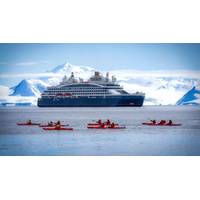
Ponant Promotes Cruising with Scientists
to advancing knowledge of the oceans and scientific research as part of our broader mission to explore responsibly and travel with care,” said Samuel Chamberlain, CEO, Ponant Explorations Group Americas.The first expedition under the new partnership will take place on an October 31 voyage to Antarctica. On the sailing will be two WHOI-MIT Joint Program graduate students, Caroline Needell and Bailey Fluegel, guided by WHOI glaciologist Dr. Catherine Walker.Aboard the world’s only passenger ship with Polar Class 2 certification—capable of navigating shifting glaciers and uncharted ice
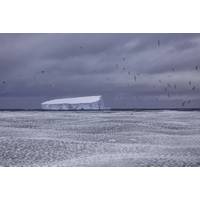
Antarctica Undergoing Abrupt Change
Antarctica and the Southern Ocean are experiencing abrupt changes due to human-caused climate change, according to research published in Nature on Thursday.The research review, led by Professor Nerilie Abram from the Australian National University (now Australian Antarctic Division Chief Scientist), shows that multiple rapid changes across the Antarctic environment are already underway, or imminent.These abrupt changes include a rapid decline in sea-ice coverage, weakening of ice sheet and ice shelf stability, and population declines in some marine and terrestrial species, due to habitat loss.“Hum
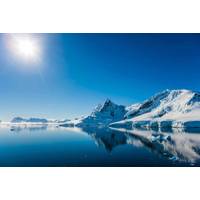
Rapid Loss of Antarctic Ice Might Signal Climate Tipping Point
Rapid loss of Antarctic sea ice could be a tipping point for the global climate, causing sea level rises, changes to ocean currents and loss of marine life that are impossible to reverse, a scientific study published on Thursday said.The paper in the journal Nature aimed to describe in previously unseen detail the interlocking effects of global warming on the Antarctic, the frozen continent at the planet's South Pole."Evidence is emerging for rapid, interacting and sometimes self-perpetuating changes in the Antarctic environment," it said.The study gathered data from

 December 2025
December 2025


